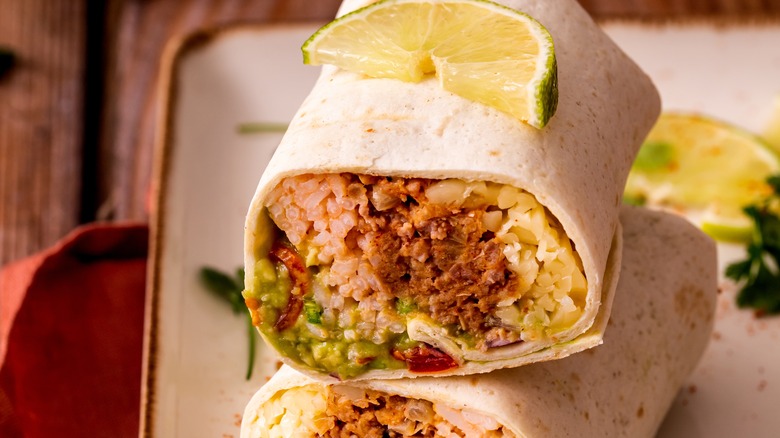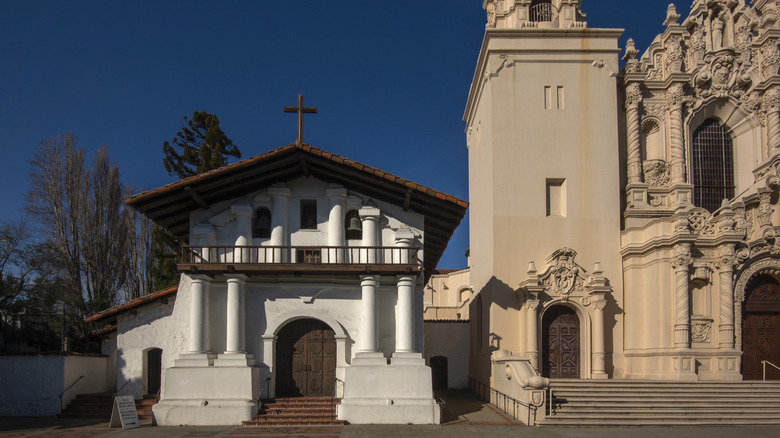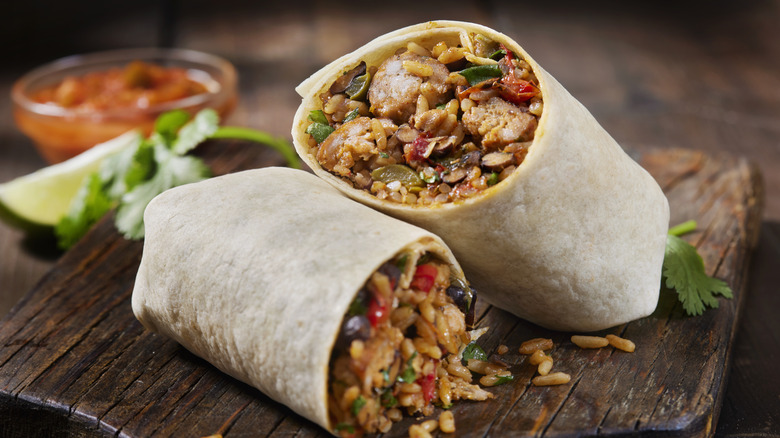What Makes San Francisco's Mission-Style Burritos Unique?
It's hard to argue burritos are anything but a delicious gift from the Mexican food heavens. A fusion of ingredients from different continents, with wheat introduced by Spanish conquistadors leading to the creation of the first flour tortillas, you can now pretty easily find burritos in every state in America, with massive fast food chains like Chipotle operating in every one of the lower 48 U.S. states and the District of Columbia.
But while burritos are everywhere, certain varieties of burritos are distinct from others, and the best-known of these just might be the Mission-style burritos of San Francisco. But how did Mission-style burritos get their start, and what makes them unique? The answer to that second question is pretty easy to define: Mission-style burritos are absolutely massive and are all about making sure you don't walk away hungry (if you can even finish them in the first place).
Mission-style burritos are named after where they started
One of America's most important cultural cities, San Francisco consists of numerous recognizable neighborhoods. There's the vibrant LGBT life of the Castro, the chill hippie vibes of Haight Ashbury — and, of course, the Mission District, one of the oldest in the city, with parts of the area dating back to its founding in 1776. It gets its name from the Mission San Francisco de Asis, the oldest structure in the city — and it's here the Mission-style burrito was born.
In 1961, a man named Febronio Ontiveros created the first Mission-style burritos to feed his local firefighters. This explains the size of the food he made: If you've ever sat down to a meal with a firefighter, you know they can frequently eat a ton of food. It's only proper that burritos of a massive size would be invented for them.
You can put whatever you want in a Mission-style burrito
That size is the main thing that makes Mission-style burritos recognizable, but what their size enables makes them truly stand apart. Though mission burritos generally start with the same basic components — rice, beans, sour cream, cheese, pico de gallo, and guacamole — from there, the sky is the limit. You can put pretty much anything in a Mission-style burrito because it has so much space that it can accommodate plenty of ingredients. Meat is the most common add-in (carne asada, ground beef, chicken, carnitas, etc.), but it's not mandatory. By the same token, it's not considered sacrilege to put non-traditional things in Mission-style burritos because experimentation is a big part of the point.
It's also worth noting that Mission-style burritos are probably the kind the U.S. is most familiar with. Chipotle, mentioned above? Those are Mission-style burritos. So, if you've ever enjoyed a burrito the size of your forearm, now you know who to thank for it.


